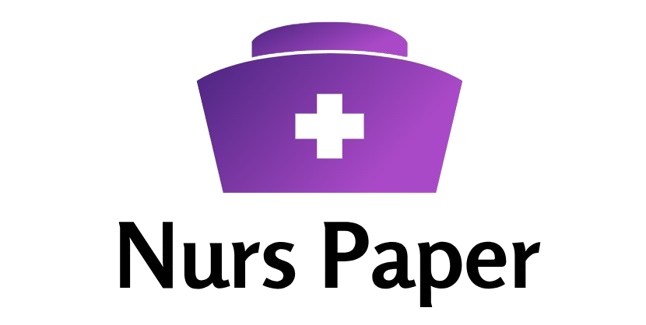Community Resources
Client Name
Capella University
NURS-FPX4060: Practice in Community Improvement Population Health
Instructor’s Name
August, 2024
Community Resources
Urban Triage is an organization dedicated to empowering Black communities through education, advocacy, and strategic partnerships. Urban Triage is committed to bringing cultural transformation in the world where everyone has an equal opportunity to heal regardless of their race ref. This is how Urban Triage plays a crucial role in promoting public health, safety, and equal opportunity. This assessment will focus on
Mission and Vision
The mission and vision of Urban Triage is rooted in bringing empowerment to Black communities through education. Urban Triage addresses the social determinants of health, such as economic stability, education, and community support to fulfill its vision of a world of equal freedom and resources to everyone regardless of their race ref. The mission is aimed to transform culture, institutions, and communities to ensure a bright future that aligns with public health and safety objectives. Urban Triage provides a safe space for the Black community to improve well-being, reduce health disparities, and overall improve community safety. It is achieved by focusing on self-awareness, inner power, and healing.
One example of Urban Triage supporting public health is its initiatives of Transformative Workgroups and Dynamic Programming that identify trauma, foster self-sufficiency, and encourage personal and professional development, to promote mental health and well-being. Urban Triage also aims to diminish inequalities and promote equity in health services through their advocacy and social justice work that contributes to overall public health (Gottlieb et al., 2020).
Promoting Equal Opportunity and Improving Quality of Life
Urban Triage promotes equal opportunity to improve the quality of life of Black and other vulnerable communities by ensuring that every Black is met with kindness and not with discrimination. This shows Urban Triage’s dedication to eradicating social, cultural, economic, and physical barriers to well-being. Urban Triage advocacy work aims to promote social justice by breaking the shackles of discrimination and racism. To enhance the well-being of Black communities, Urban Triage works to reduce economic barriers by organizing economic empowerment initiatives, such as employment opportunities, financial support, and entrepreneurship programs (Williams & Mohammed, 2019). Furthermore, this organization also addresses cultural barriers by providing culturally relevant education directed to the needs of Black individuals.
Urban Triage has started two initiatives, Community Support Services and Crisis Response Services, both provide resources such as stipends, utility assistance, and rental support to inhibit physical barriers and increase access to healthcare and safety facilities (Jones et al., 2021). All these initiatives by Urban Triage are aimed at improving the quality of life and promoting equal opportunity for Black communities.
Funding Sources
Urban Triage operates with a funding model that enables it to provide services to Black communities. This organization relies on funding from employment, advocacy, and entrepreneurship opportunities. However, these funding decisions, policy changes, and legislative actions can impact the communities served by Urban Triage. Such as health disparities can increase and impact the organization’s ability to provide services to communities if fundings are reduced (Frieden, 2019). The organization’s legalization may impact housing, healthcare access, and economic opportunities. Such as an organization’s aim can be supported by policies that promote affordable housing and also expand access to healthcare so that the communities can thrive (Taylor, 2020).
Impacting the Health and Safety Needs
Urban Triage significantly impacts the health and safety needs of Black communities by providing education, advocacy, and support. For example, the organization’s Psychoeducation and Psychotherapy programs provide individuals with the resources to overcome trauma and develop resilience, ultimately reducing health concerns (Substance Abuse and Mental Health Services Administration, 2021). Urban Triage focuses on economic empowerment and community leadership development and aims to equip individuals with self-sufficiency to improve the well-being of the whole community. This organization improves public health and safety by addressing the root cause of health disparities and social injustice.
Nurses can support the mission and vision of Urban Triage by addressing the health needs of vulnerable populations, such as providing educational resources and promoting health equity and well-being. Moreover, nurses can also provide their services by volunteering in trauma-informed care, mental health support, and community health promotion.
Conclusion
The values of Urban Triage are rooted in improving public health and safety, promoting equal opportunity, and enhancing the quality of life in Black communities. The organization must address the funding, policies, and legislation to provide well-being and community resilience. To efficiently serve the Black communities, Urban Triage can advance its mission and promote a more equitable society by involving healthcare professionals such as nurses in enhancing well-being.
References
Frieden, T. R. (2019). Health equity: Public health in the new era. Journal of the American Medical Association, 322(10), 935-936. https://doi.org/10.1001/jama.2019.12066
Gottlieb, L., Wing, H., & Adler, N. E. (2020). A framework for assessing social determinants of health screening and referrals: Findings from the accountable health communities Model. Journal of General Internal Medicine, 35(3), 885-892. https://doi.org/10.1007/s11606-019-05441-z
Jones, A. E., & Robinson, L. R. (2021). Addressing barriers to health equity: The role of community-based organizations. Public Health Reports, 136(4), 402-409. https://doi.org/10.1177/00333549211013592
Substance Abuse and Mental Health Services Administration. (2021). Trauma and violence: How to recognize and cope. SAMHSA. https://www.samhsa.gov
Taylor, L. A. (2020). Housing and health: An overview of the literature. Health Affairs, 39(8), 1440-1448. https://doi.org/10.1377/hlthaff.2020.00728
Williams, D. R., & Mohammed, S. A. (2019). Racism and health: A review of the literature and future directions. Journal of Health and Social Behavior, 60(1), 13-26. https://doi.org/10.1177/0022146519830242
